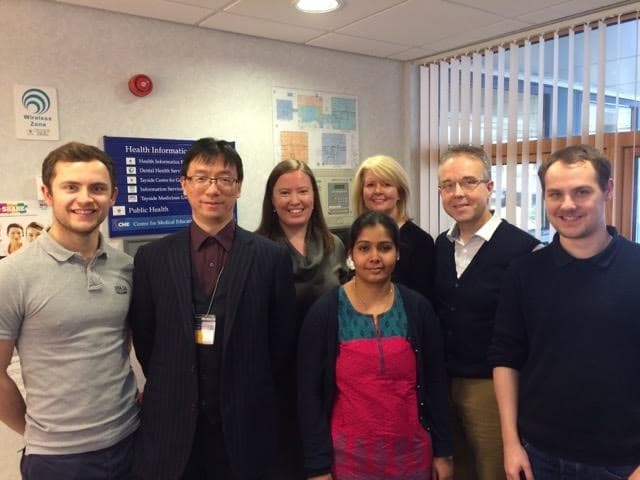Dr Sarah Mills receives Howard Elder Prize for cancer research

Sarah Mills (3rd from left) with the Chronic Pain research team in the Population Health Sciences department.
The University of Dundee School of Life Sciences Howard Elder Prize prize is awarded to a postgraduate student or postdoctoral researcher deemed to have published the most significant paper in an area related to cancer research.
Sarah received the prize in recognition of her paper “Factors affecting use of unscheduled care for people with advanced cancer: a retrospective cohort study in Scotland”, published in the British Journal of General Practice (BJGP).
The study finds that the majority of unscheduled care given to people who die from cancer is GPOOH (GP Out-of Hours). Common causes for visits are pain and palliative care. Previous studies based on only A&E (accident and emergency) visits have led to an underestimation of the frequency of unscheduled care use.
PATCH provided initial funding for this research.
At PATCH, we extend our deepest gratitude to Sarah and her fellow researchers. Their thorough research grants us all a better understanding of the situation, and gives a solid foundation for their suggestions of anticipatory care planning, improved community support, and streamlined care pathways.